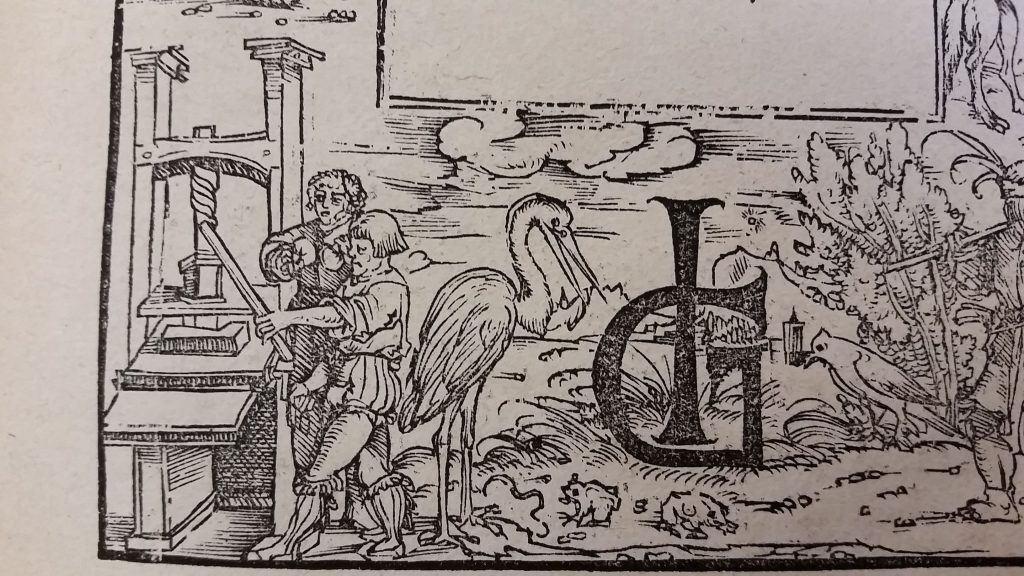The combined workshops and seminars for the Palaeography, History of the Book and Digital Humanities provide training in dealing with manuscripts and books across different historical periods and European languages. The aim is to combine philological training with project work which takes seriously the material turn in Modern Languages and will enable students to do editorial work in the age of Digital Humanities. Within the framework of knowledge exchange, these two method options cooperate with the local libraries and printers to make use of the unparalleled richness of Oxford resources, especially the Taylorian Institute and the Centre for the Study of the Book.
The schedule below is a sample of things on offer and might be adapted to feature new projects and initiatives. At some point there will also be a Library Crawl around Oxford which will coincide with College exhibitions such as the Incunable Trail or pop-up exhibitions. Please consult the bibliography for introductory reading, also available as a hyperlinked ORLO (Oxford Reading Lists Online). In 2023/24, the regular classes will take place on Wednesday afternoon, 3-5pm, in the Taylor Institution Library, Room 2, unless a different time and place is given.
1) Show & Tell Introductory Session (Taylorian)
Treasures of the Taylorian with Henrike Lähnemann and Emma Huber
2) Engaging with Print (Bodleian, Print Room)
Workshop on typesetting and printing pamphlets with Richard Lawrence
3) Digital Tools (Taylorian)
Introduction to apps, blogs and social media with Henrike Lähnemann and Emma Huber. Worksheet
4) Understanding Book Trade (Taylorian)
Session with Cristina Dondi on Circulation of Early Printed Books
5) Palaeography (Weston Library)
Introduction to palaeography
6) Historic collections in historic and modern contexts (St Edmund Hall)
How to handle old books and care for the collection with James Howarth
7) Masterclass Materiality (Bodleian, Conservation Department)
Workshop with Andrew Honey and members of the Conservation Department
8) Understanding Text-Image-Relationship (Taylorian)
Seminar with Daron Burrows on Apocalypse Manuscripts
9) Defining your Project (Taylorian)
Abstract writing workshop for Hilary Term Project; matching up with supervisors
At the end of the second Term each student submits an essay of between 5,000 and 7,000 words in length (the word count includes footnotes, but excludes bibliography). The coursework leading up to it consists of a portfolio of regular practical tasks such as writing a blog post, setting up a Flickr site, test transcriptions, basic xml encoding and catalogue entries for books. Ideally, the essay focuses on source material available in Oxford libraries.
PS: In 2020/21, we did creative adaptations of the schedule to accommodate meeting restrictions – all sessions consisted of a combination of material encounters (“stroke-a-book” moments) and digital content (prerecorded lectures and streaming live sessions); the result were the ‘Digital Editions Live’ launches, an artform in itself. We will in future keep part of this approach alive!


2 thoughts on “Introducing the Method Option “Palaeography, History of the Book and Digital Humanities””